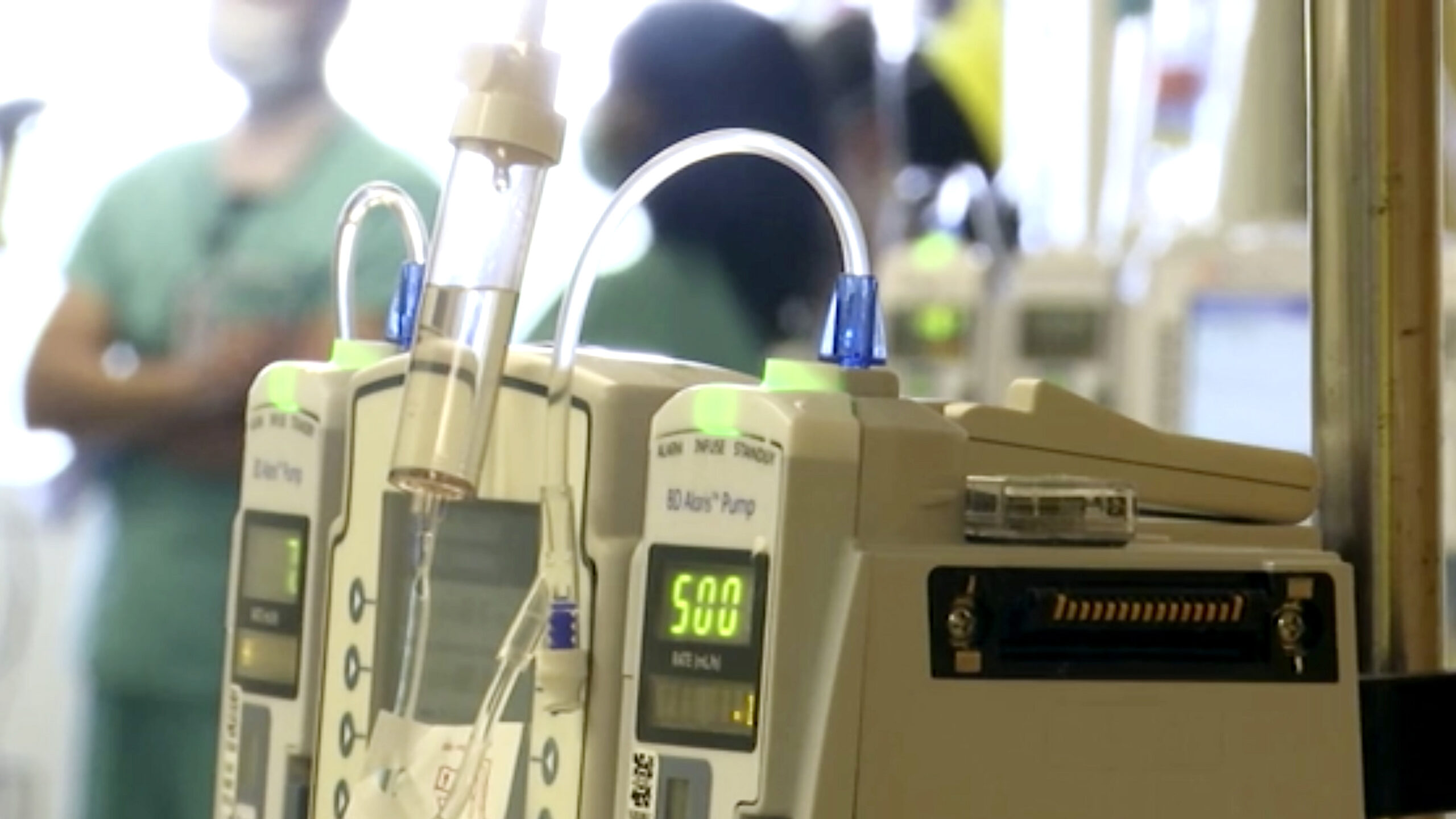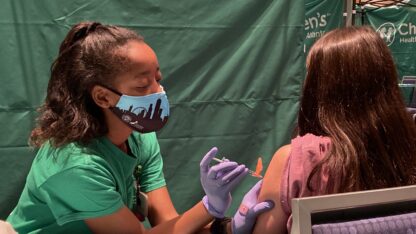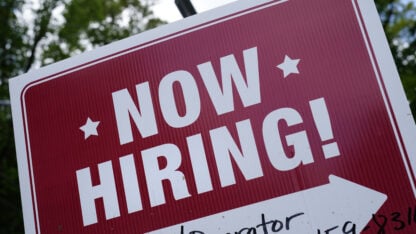Across Georgia on Wednesday, dozens of hospitals were reporting severe ER crowding and various forms of “diversion” — sending patients elsewhere due to capacity problems.
The Delta variant of COVID-19, sweeping through the state, is rapidly increasing case numbers and hospitalizations.
But exacerbating the current patient crunch is the ever-worsening shortage of health care workers in the state, especially nurses. Those shortages are hamstringing the ability of hospitals to respond to the medical crisis.
The nursing shortage in the state is worse than ever, Matt Caseman, CEO of the Georgia Nurses Association, said Wednesday.
Many of the RNs who remain in hospital jobs – working their fourth COVID surge – “are depressed, angry, frustrated,’’ he said. “We’re hearing they can’t take it anymore.’’
Many nurses have left hospital work during the pandemic, taking jobs in clinics, shifting to temp positions or simply retiring, Caseman said. Hospitals are doing what they can to ease stress on workers, he said, “but in these situations, you can only do so much.’’
The anger of nurses, Caseman said, stems from having to deal with another COVID spike, plus their reaction to the still substantial number of Georgians who are unvaccinated – more than half the state’s residents.
In rural Georgia, “we’ve got beds sitting idle and no staff to support them,’’ said Jimmy Lewis, CEO of HomeTown Health, an organization of rural hospitals in the state. “We have major shortages of nursing and other care staff.’’
“This is an ongoing problem,’’ he added. “We don’t have a way to speed up the availability of nurses.’’
Northeast Georgia Health System, based in Gainesville, told the AJC last week that it looking to hire more than 500 nurses to lessen the COVID-related strain.
And in Augusta, University Hospital said it would like to would like to reopen its Summerville campus, which was crucial last year in meeting the demands of the pandemic. But there is not enough staff available to do that, hospital officials told the Augusta Chronicle.
“We have beds,” Dr. Ioana Chirca, medical director for infectious diseases, infection prevention and microbial stewardship, told the newspaper. “We don’t have nurses, and the physicians will have to be stretched to cover that. It is necessary right now to open it, we just cannot staff it.’’
New cases are mounting
The state’s Department of Public Health reported more than 7,000 new cases of COVID-19 Wednesday for the second straight day. Hospitalizations for the disease climbed again, to reach 3,800 statewide.
As of 5 p.m. Wednesday, more than 40 hospitals in Georgia reported severe ER crowding. Many also reported that their ICUs or medical beds were filled, and thus they were diverting patients.
It’s increasingly difficult for ambulance crews to find hospitals that can take emergency patients, industry officials say.
The overall hospital crowding isn’t just due to COVID patients.
Grady Memorial Hospital in Atlanta has also seen a record number of trauma patients, as well as high numbers of those needing non-COVID medical care.
“The Delta variant is driving a fourth wave of COVID-19 cases that are again bringing hospitals to a breaking point,’’ said Grady CEO John Haupert. “Just one month ago, we had 12 hospitalized COVID patients. Today that number is 100. Grady is striving to meet the demand for our emergency and inpatient services.’’
Grady’s chief medical officer, Dr. Robert Jansen, told WSB that he’s very concerned the COVID outbreak may get even worse after Labor Day Weekend.
Wellstar Health System, based in Marietta, said that as metro Atlanta hospitals experience higher volume with more intense patient care for severe illness, “we are seeing longer ED [emergency department] wait times and temporary diversions.’’ It added that the 11-hospital system “went into the pandemic with nursing and physician shortages and continues to navigate staffing challenges exacerbated by the pandemic.’’
Urging people to get shots
Piedmont Healthcare, the largest hospital-based system in the state, said unvaccinated patients represent 95 percent of its COVID hospital admissions and 99.2 percent of its COVID deaths.
At Piedmont’s hospital in Cartersville, CEO Chris Mosley told local radio station WBHF that patients who have been admitted have to wait longer for a bed to become available.
COVID patients at the hospital are younger than in previous surges, he said, with some in their 20s, 30s and 40s.
“That’s scary,’’ Mosley said. “I hope it will be a call to action for Bartow County to get vaccinated.’’
Just 29 percent of county residents are vaccinated. “It’s just not high enough,’’ Mosley said.
In the Statesboro area, Grice Connect, a local news outlet, reported more than three-hour wait times at area emergency rooms and over one-hour wait times at urgent care centers. The region EMS services are reporting record call volumes.
University Hospital told the Augusta Chronicle that it has requested 30 nurses from the state to help with the crush of patients but so far has heard nothing back.
Janee Dock, vice president of nursing and chief nursing officer, told the newspaper, “The main difference is that we are seeing a steeper increase in cases compared to last time.”
“We don’t know what the peak is going to be but if you look at the other states, they have already surpassed their previous peaks. I think this is going to be worse than it was last summer.”









